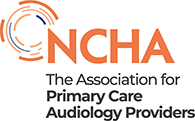27 January 2015
Hearing Care Closer to Home is Phenomenal NHS Success, New Results Show
New results show adult community hearing care is delivering on the Department of Health’s vision of high quality hearing care closer to home, according to an outcomes dataset published today by the National Community Hearing Association.
[caption id="attachment_1357" align="alignright" width="240"] Click here to view the data[/caption]
Click here to view the data[/caption]
Results show that in 2013-14 adult community hearing services enjoyed a 98% patient satisfaction score and excellent compliance rates, with 90% plus of patients[1]using their hearing aids after one year. The results also show the service delivers better access for more people, with shorter waiting times and ongoing support with 100% of patients accessing follow up care.
The results support the Department of Health vision, first published in 2007 and reiterated in 2012, that hearing care should be provided closer to where people live. The new models of hearing care also reflect a consensus that adult hearing loss, as a long term condition, is best managed through sustainable long-term relationships between patients and providers; and also meet the goals set in NHS England’s Five Year Forward View of delivering more care outside traditional hospital settings.
Age-related hearing loss is the main cause of hearing loss in England. Just as most people with age-related vision changes do not need to go to hospital to see an ophthalmologist, most people with age-related hearing loss do not need to go to hospital for hearing care. So far NHS commissioners in 58% of CCG areas have chosen to develop local services in this more accessible way but, in the Department of Health’s and NHS England’s vision, this should be the norm throughout the country making services more accessible for and convenient for patients and making better use of NHS resources at the same time.
Mark Georgevic, NCHA Chair, said: “It is clear that patients welcome and benefit from the service. Community hearing care empowers people to take control of their condition, enabling them to remain independent and active in their community. The knock-on health benefits and saved capacity in secondary care mean commissioners can make use of existing community infrastructure without additional capital investment.”
David Hewlett, NCHA Chief Executive, said:“These data show what can be achieved in the community at scale through better commissioning. If this doesn’t send a clear message to commissioners about what commissioners and providers can do together when the focus is on the patient and their needs, it is hard to know what will. We must now work with all providers and commissioners to put patient outcomes at the heart of everything we do.”

Press enquiries
Media enquiries should be directed to [email protected] or call 020 7298 5110.
We are happy to put you in touch with our expert policy advisers who can comment on a variety of issues.
You can also follow us on Twitter and LinkedIn.

 Your hearing and aural health
Your hearing and aural health  Commissioners and Policymakers
Commissioners and Policymakers  Member support and guidance
Member support and guidance News and views
News and views
 Hearing map
Hearing map
